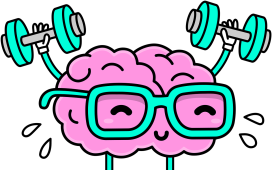Some people find that having a glass of water before bedtime helps them sleep, but for others, this habit can cause sleep problems. We look at the science of hydration and sleep to help you decide what’s best for you.
Is it okay to drink water before bed?
The decision to drink water before bed is more complicated than it appears. On the one hand, it’s essential to avoid dehydration, which can hurt your sleep quality and overall health. However, drinking too much water immediately before bed can disrupt your sleep cycle if you have to wake up to use the restroom.
If you have a specific health issue, such as kidney or bladder problems, or if you take medications that may alter fluid balance, speak with your doctor for specific guidance.
Benefits of Drinking Water Before Bedtime
While it is advisable to limit your water intake before bedtime, drinking plenty of water early in the evening can provide numerous health benefits. Listening to your body’s cues and modifying your water consumption will help you get the most out of the advantages without sacrificing your sleep.
1. Preventing Nighttime Dehydration
Dehydration during the night can cause a dry mouth and throat, disrupting your sleep cycle. You may also wake up with a painful throat.
2. Promoting brain health and reducing headaches
Hydration has a direct effect on brain health. Dehydration can induce brain fog and headaches, even at night, so staying hydrated can help you sleep better.
3. Improving skin health
Dehydrated skin is more prone to dryness and premature wrinkles. Drinking enough water can help maintain skin moisture and suppleness, resulting in a healthier, more rejuvenated appearance.
Drinking Ice water vs Drinking Warm water
Did you know that the temperature of the water you drink before bed can have a variety of consequences on your health and sleep quality? When deciding between freezing water and warm water before bed, pay attention to how your body reacts. Consider your particular tastes and health demands while adjusting your water habits for better sleep.
The Case for Ice Water
Drinking ice water before bedtime can be pleasant, especially in warm climates or in hot weather. Cold water can be refreshing, especially after a long day. However, drinking cold water immediately before bed may be stimulating, making it more difficult to relax and fall asleep.
If you have sensitive teeth or stomach disorders, frozen water may cause discomfort. Try water at room temperature instead.
The Benefits of Warm Water
Warm water can provide various benefits when drank before bedtime. Warm water is often gentler on the digestive tract and can aid in digestion, lowering the chance of pain at night.
If you have a cold or the flu, warm water can help remove nasal congestion and ease a sore throat.
Adding warm water to your bedtime routine can also act as a soothing ritual that lets your body know it’s time to unwind.
Herbal teas
Herbal teas can make an excellent complement to your sleep routine. Choose caffeine-free choices like as chamomile, lavender, or peppermint, which are recognized for their calming effects. These beverages hydrate while also providing therapeutic benefits, such as improved sleep hygiene and quality.
How much water should I drink before bedtime?
The daily water intake recommended for an average adult is two to four liters, however this might vary depending on body size, activity level, environment, and overall health. It is critical to distribute this intake throughout the day rather than taking a high amount in a short period of time.
As evening approaches, be conscious of your water consumption to limit the amount of liquids you eat in the final hours before sleeping. This does not imply you should be dehydrated, however. A little to moderate amount of water is ideal—enough to satisfy your thirst without making you feel excessively full.
When drinking water before bed, adjust your hydration to meet your own needs. Keep an eye out for thirst symptoms, as well as the color of your urine and the regularity with which you use the restroom.
Your urine should be light pale yellow. Dark urine typically indicates dehydration, however perfectly clear pee may indicate overhydration. How much water you drink in the evening is influenced by factors such as your daytime activity levels, the climate in which you reside, and your overall health.
Conclusion:
While drinking water before bed can be beneficial, it can also disrupt your sleep by causing frequent overnight urination. If you’re thirsty before bed, try drinking a little glass of water to help you get through the night. However, staying hydrated throughout the day eliminates the need to drink excessive amounts of water before bedtime.







